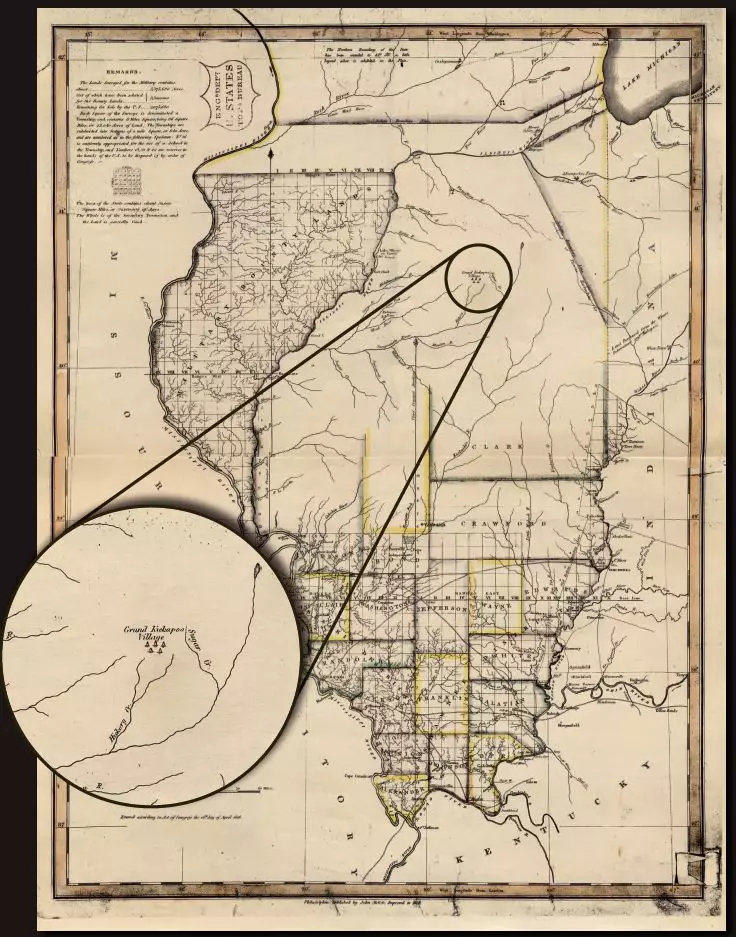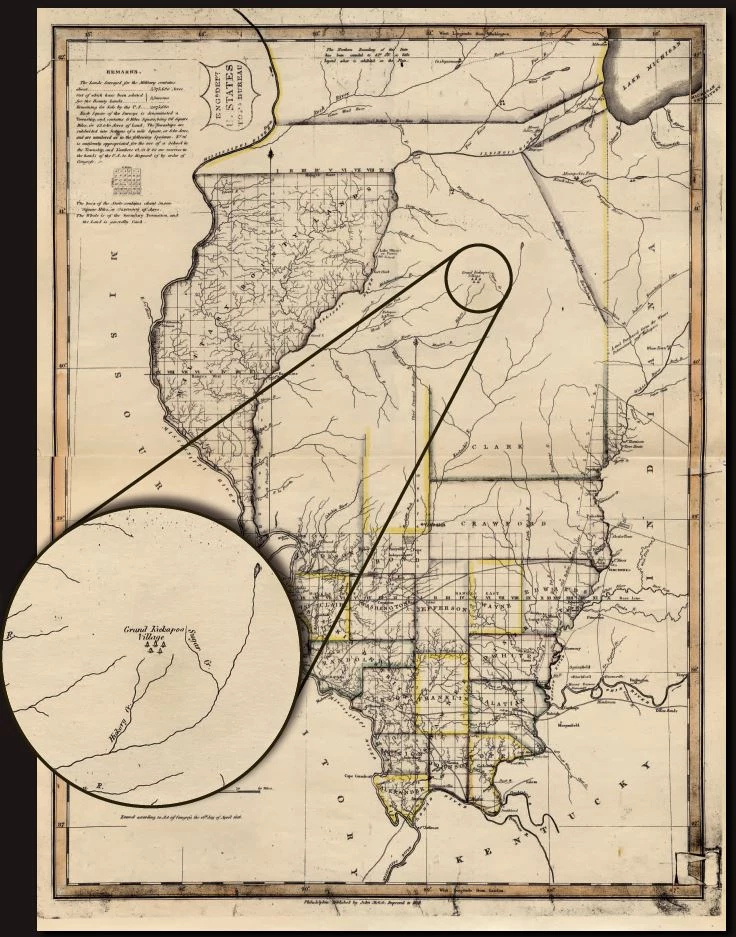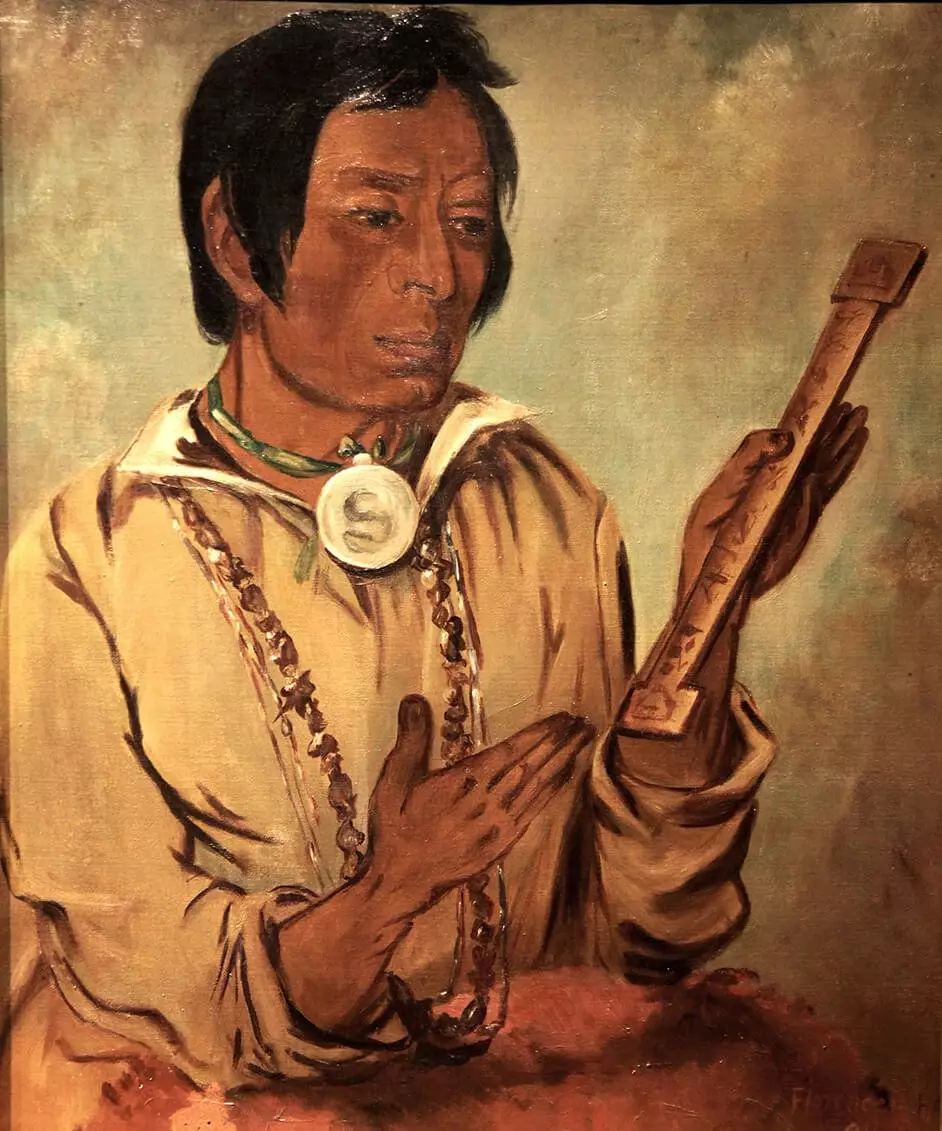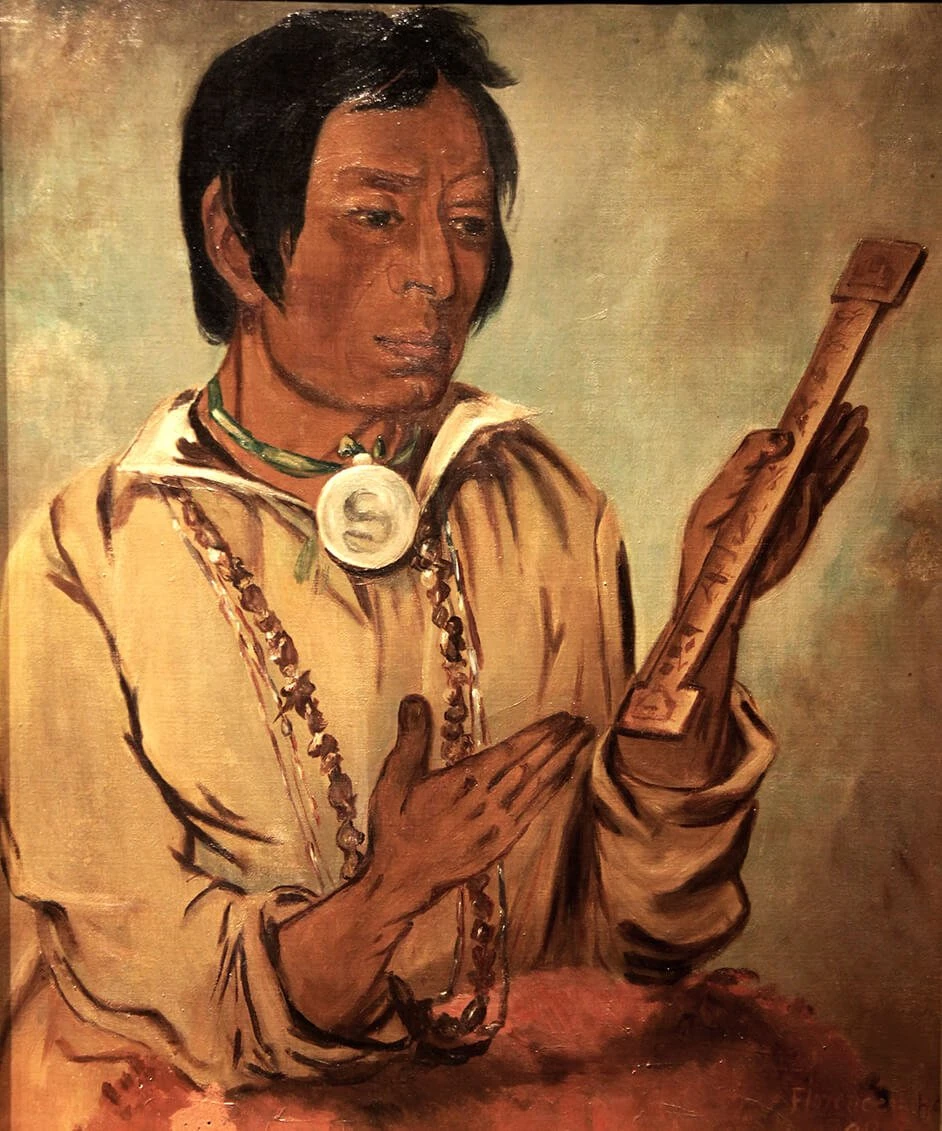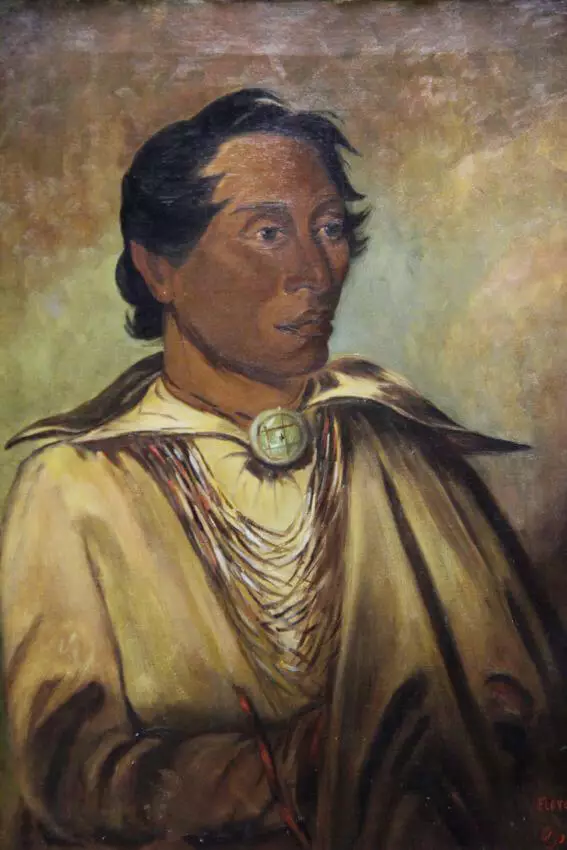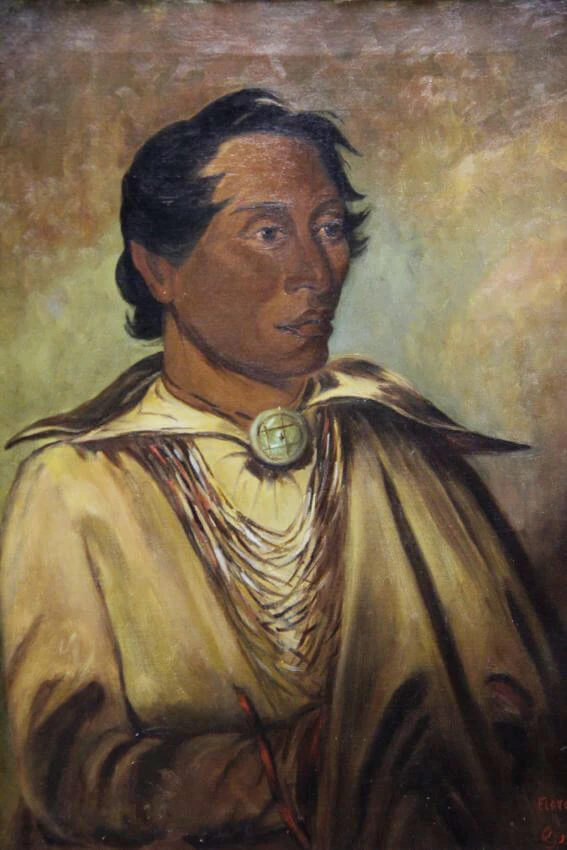1818
Who had the power to choose where they lived?The U.S. government believed “Indian Removal” was imperative and expected all Native people east of the Mississippi River to voluntarily exchange their Illinois lands for lands west of the river.
The Kickapoo once lived between the Great Lakes of Michigan and Erie in southern Michigan and northwest Ohio. But in the early 1700s competition from other Native groups and Europeans forced them from these lands to Illinois. Less than 100 years later, the U.S. government demanded they move again.
Who had the power?
The U.S. Government
In 1818, just after the State of Illinois was established, the U.S. government began efforts to extinguish Native peoples’ titles to Illinois land and force the Tribes to resettle west of the Mississippi River.
Given the size and strength of the U.S. military, the small bands of Native Tribes with whom the U.S. government negotiated undoubtedly feared the U.S. and its military forces.
Left with the choice to fight against superior U.S. forces or leave their homes, in 1819 most signed the Treaty of Edwardsville, ceding their lands in Central Illinois in exchange for a new home on the Osage River in southwest Missouri.
The Kickapoo
When the Kickapoo arrived in Illinois, the Prairie Band occupied a stretch of Central Illinois running from the headwaters of the Sangamon River westward to Lake Peoria. This band established the Grand Village of the Kickapoo in eastern McLean County. The Vermilion Band settled along the western drainage of the Wabash River.
The Kickapoo were a fiercely independent, culturally conservative people, long known for spreading terror—raiding frontier settlements, burning homesteads, and killing pioneers to improve their political and strategic position. They also took captives and held them for payment or used them as collateral when negotiating treaties.
When Chief Masheena of the Prairie Kickapoo learned of the Treaty of Edwardsville, he responded:
“[White man] damn quick putting black [ink] upon white [paper].”
— Chief Masheena of the Prairie Kickapoo
Treaty of Castor Hill
Masheena, his son-in-law Chief Kennekuk, and their followers in Livingston and McLean counties remained in Central Illinois until about 1832 when the U.S. government forced the last of the Native people from Illinois with the Treaty of Castor Hill.
By then the Kickapoo living in Missouri had again succumbed to the U.S. government's insatiable demand for land and had been forced to move to a newly established reservation in Kansas. It was to this reservation that Kennekuk and his followers moved to in 1835.
The U. S. government provided the following to the Kickapoo who signed the Treaty of Castor Hill:
Land to live on southwest of the Missouri river, as long as they remained a Tribe. (It is unclear from the treaty exactly how much land the Kickapoo received.)
Within one year after the ratification of this treaty, an annuity of eighteen thousand dollars.
An annuity of five thousand dollars for merchandise, purchased at cost in St. Louis, or cash for nineteen successive years
One thousand dollars annually for five successive years, for the support of a blacksmith and strikers ; purchase of iron, steel, tools, &c. for the benefit of said Tribe, on the lands hereby assigned them.
Thirty-seven hundred dollars, for the erection of a mill and a church, for the use of said Tribe, on the aforesaid lands.
Five hundred dollars per annum, for ten successive years, for the support of a school, purchase of books, and for the benefit of said Kickapoo Tribe on the lands herein ceded to them.
Three thousand dollars for farming utensils, when such utensils may be required by said Tribe, on their land.
Four thousand dollars for labor and improvements on their new lands.
Four thousand dollars in cattle, hogs, and such other stock as may be required by the said Tribe; to be al so delivered on their land.
Merchandise and cash for the use and benefit of their Tribe, six thousand dollars, the receipt of which is hereby acknowledged; which amount, together with the several stipulations contained in the preceding articles, shall be considered as a full compensation for the cession herein made by said Kickapoo Tribe.
Reflection Questions
Why did the U.S. government have the power to control land ownership?
What, if anything, could Native people have done to overcome this power?
 Making a Home
Making a Home
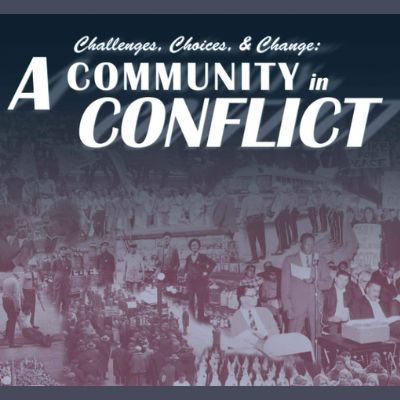 A Community in Conflict
A Community in Conflict
 Working for a Living
Working for a Living
 Farming in the Great Corn Belt
Farming in the Great Corn Belt
 Abraham Lincoln in McLean County
Abraham Lincoln in McLean County
